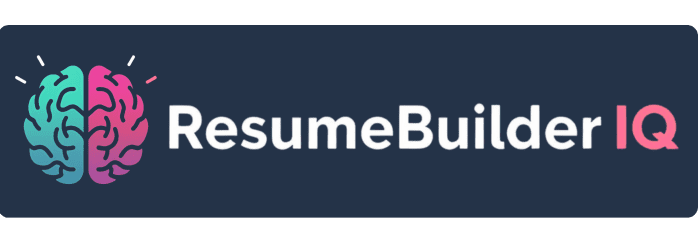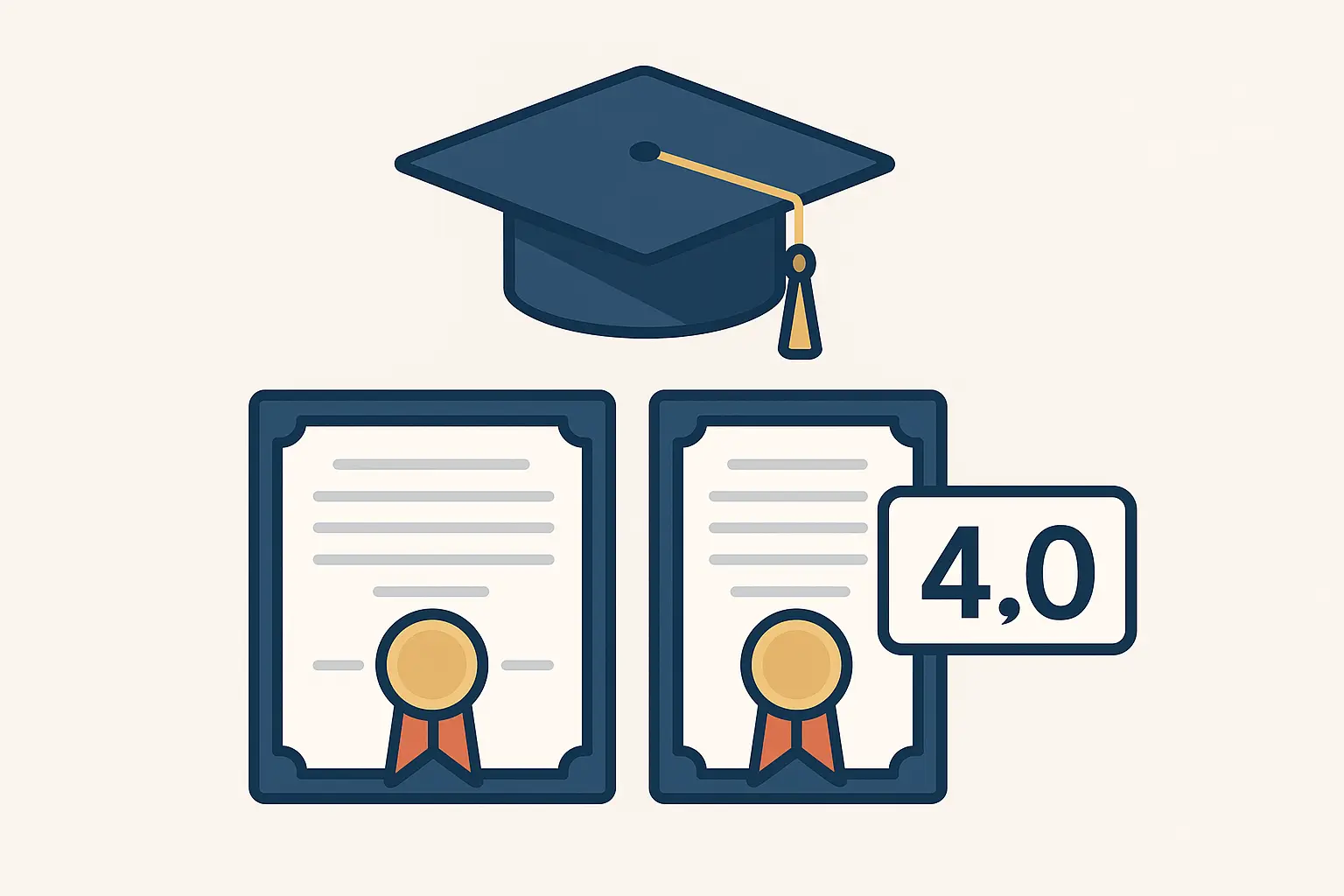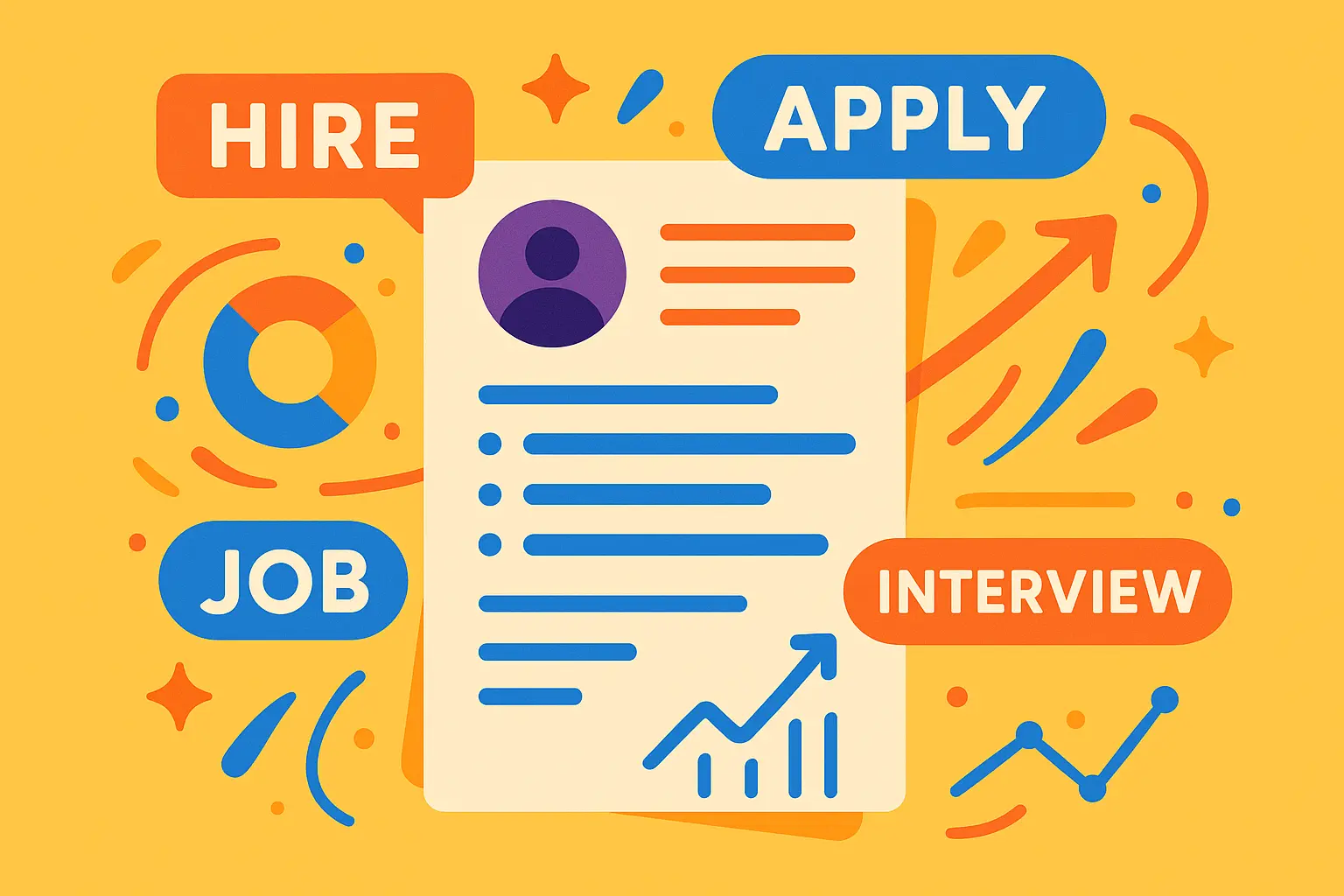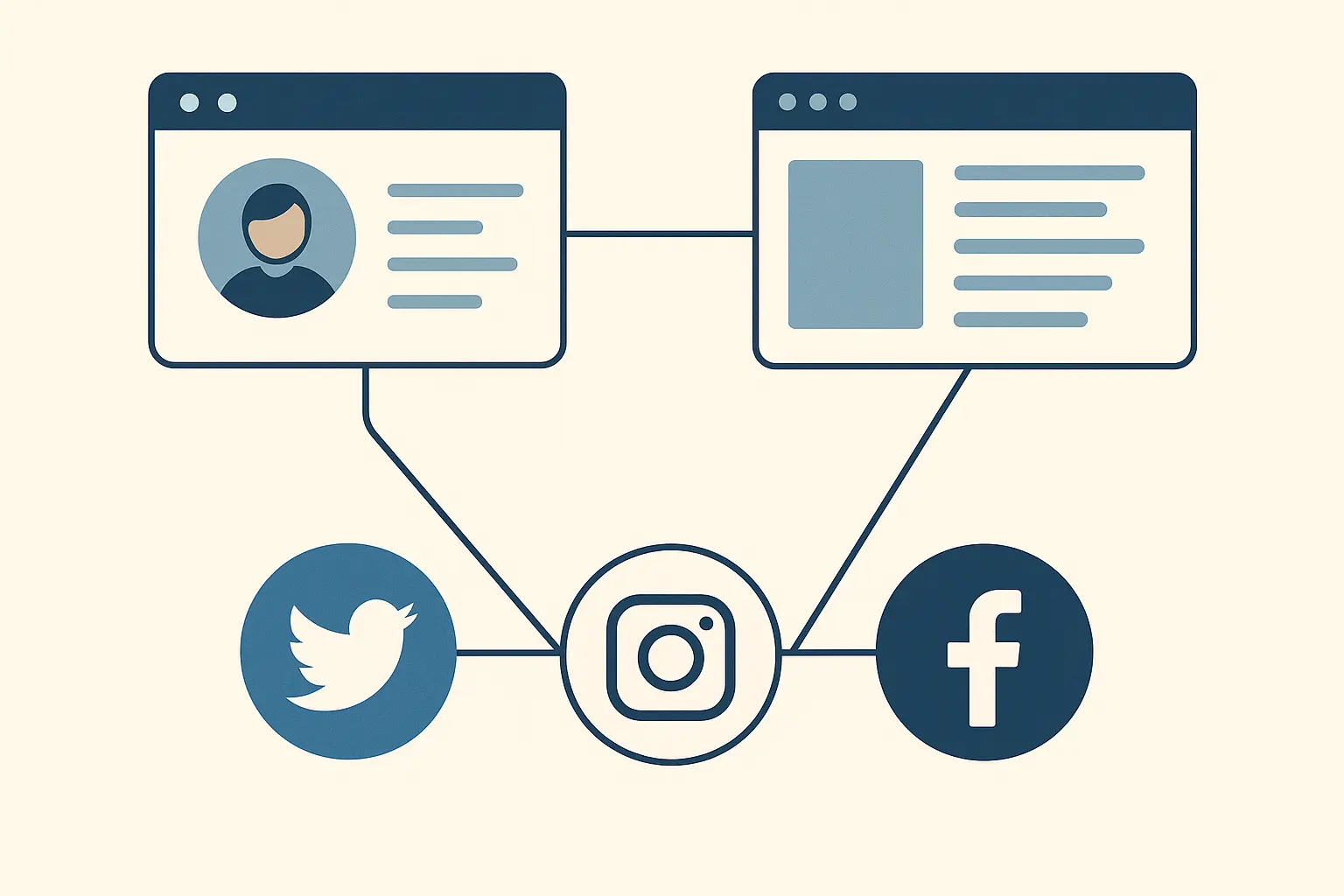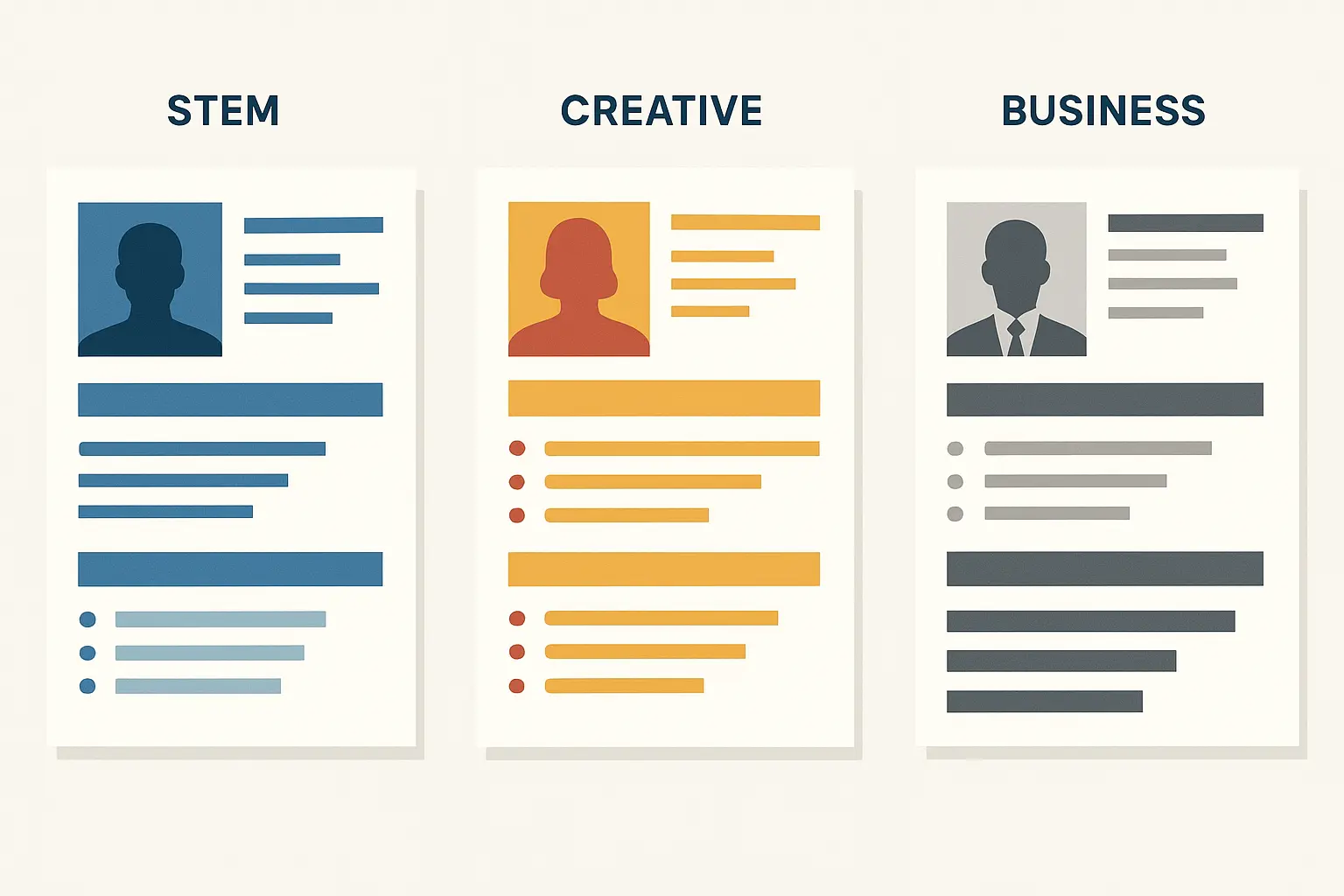College Resume Examples That Actually Get You Hired (Without Years of Experience)


Table of Contents
- Why Your College Resume Isn’t Working (And How to Fix It)
- Making Your College Experience Count
- Skills That Actually Matter to Employers
- Creating a Professional Look on a Student Budget
- Writing That Gets Results
- Building Your Digital Presence
- Tailoring Your Resume for Different Industries
- How Resume Builder IQ Makes This All Easier
- Your Next Steps
TL;DR
• Stop apologizing for lack of experience – emphasize your potential and achievements instead
• Include GPA only if it’s 3.5+ and always provide context (Dean’s List, specific semesters)
• Put numbers on everything – even that volunteer work or club leadership role
• Make sure computers can read your resume before humans see it (most get scanned first)
• Show soft skills through examples, don’t just list them
• Different industries want different things – tech wants details, creative fields want personality
• Your LinkedIn and portfolio should expand your story, not repeat your resume
Why Your College Resume Isn’t Working (And How to Fix It)
Last week, a student told me, “I have nothing to put on my resume except school.” Sound familiar? Here’s what she was missing – and what most students get wrong about their first “real” resume.
Look, I get it. When you’re staring at a blank document with barely any traditional work experience, it’s tempting to apologize for what you don’t have. But here’s the thing – employers hiring college grads aren’t expecting a seasoned professional. They want someone hungry to learn, with fresh ideas and solid fundamentals. That’s exactly what you are.
The biggest mistake? Treating your college resume like a watered-down version of your dad’s corporate resume. Your resume should actually highlight what makes you valuable right now – your ability to excel in structured environments, juggle multiple priorities, and contribute fresh perspectives to teams and projects. Looking at strong college resume examples can help you see how students with similar experiences present their skills effectively.
Whether you’re applying for internships, part-time jobs, or that dream job after graduation, the right college student resume can open doors according to BeamJobs’ comprehensive guide. You’re not competing on years of experience because you don’t have them yet. You’re showcasing potential.
Think about it this way – you’ve been managing deadlines, working in teams, solving complex problems, and proving you can learn new things quickly for the past four years. That’s exactly what employers want. You just need to present it right.
Understanding what makes a resume effective starts with mastering professional resume format principles that work for students entering the job market. Recent research shows that 51% of colleges rated extracurricular activities as moderately or considerably important to admissions decisions according to BestColleges’ 2023 survey. Guess what? Employers feel the same way about your involvement beyond the classroom.
Making Your College Experience Count
Your academic performance and campus involvement aren’t just bullet points – they’re proof of your work ethic, leadership potential, and ability to deliver results. The trick is presenting them like the professional experiences they actually are.
Your GPA: When to Brag and When to Skip It
Here’s the truth about GPAs: if yours is below 3.5, leave it off entirely. Nobody expects perfection, and there are plenty of other ways to show you’re smart and hardworking.
But if you’ve got a solid GPA, don’t just write “3.8” and call it done. Context matters enormously. “3.8/4.0” immediately tells the reader your scale. Even better: “3.8/4.0 (Dean’s List: Fall 2023, Spring 2024)” shows consistency and recognition.
According to BeamJobs, if your GPA is 3.5 and above and you don’t have industry-specific experience. Including it shows your dedication to learning and achieving the best, which could convince recruiters you’re the right candidate. The formatting creates immediate credibility and shows you understand professional presentation standards, which you’ll notice in most well-crafted college resume examples.
Coursework That Actually Tells a Story
Don’t list “Introduction to Psychology” if you’re applying for finance roles. Instead, think strategically about which courses prove you’re prepared for the work you want to do.
A pre-med student might highlight “Organic Chemistry, Human Anatomy, Research Methods in Biology” while someone targeting marketing roles could showcase “Consumer Behavior, Digital Analytics, Marketing Strategy.” Your coursework section should tell a story about your preparation and interests.
| Major | Smart Coursework Choices | Why It Works |
|---|---|---|
| Marketing | Consumer Behavior, Digital Analytics, Marketing Strategy | Shows you understand customer psychology and data-driven decisions |
| Computer Science | Data Structures, Software Engineering, Database Systems | Proves technical foundation and practical application skills |
| Business | Financial Analysis, Operations Management, Business Statistics | Demonstrates analytical thinking and business understanding |
| Psychology | Research Methods, Statistical Analysis, Cognitive Psychology | Highlights research skills and scientific approach |
The table below highlights how different majors can strategically select coursework, much like you’ll see in college resume examples tailored to each field.
Research and Projects That Prove You Can Deliver
“Participated in psychology research” tells me nothing about what you actually did. “Conducted statistical analysis on 200+ survey responses for social psychology research project, contributing to findings presented at regional conference” shows initiative, technical skills, and real impact.
Remember that group project where you basically became the unofficial project manager? That’s leadership experience. The semester you juggled five classes, a part-time job, and still maintained your grades? That’s time management and resilience.
Every significant project or research experience should answer three questions: What did you do? How did you do it? What was the result? Even if your research didn’t cure cancer, you can highlight the skills you developed and the methodologies you learned.
Strong Research Description:
“Undergraduate Research Assistant, Dr. Smith’s Environmental Science Lab (Sept 2023-Present)
• Analyzed water quality data from 15 local streams using R statistical software
• Contributed to research manuscript on microplastic contamination (submitted to Environmental Science Journal)
• Presented findings at Regional Undergraduate Research Conference to audience of 100+ attendees”
Campus Activities That Show Real Leadership
“Member of Marketing Club” doesn’t impress anyone. “Marketing Club Vice President (2023-2024): Increased membership by 40% through targeted recruitment initiatives and organized professional development workshops for 80+ students” shows leadership, results, and initiative.
Always include your specific role and duration, especially if you progressed through different positions. “Member (2022-2023), Vice President (2023-2024)” demonstrates growth and increasing responsibility. Employers love seeing this progression because it suggests you’ll do the same in their organization.
The University of Cincinnati emphasizes that experience opportunities are everywhere: internships, co-ops, leadership roles, study abroad programs for college students building their resumes. The key is recognizing these opportunities and presenting them professionally.
That time you organized your dorm floor’s study group and everyone’s grades improved? That’s program development and team leadership. When you figured out how to balance your campus job, classes, and that group project from hell? That’s project management and problem-solving under pressure.
Volunteer Work That Shows Impact
Volunteer work often provides some of the best examples of measurable impact on college resumes. “Tutored underprivileged elementary students in math and reading, improving average test scores by 15% over one semester” demonstrates commitment, teaching ability, and results.
Even if you can’t measure direct outcomes, you can quantify your involvement: “Organized monthly food drives collecting 500+ pounds of donations” or “Coordinated volunteer schedules for 25+ community service participants.” These numbers show scope and organizational skills.
Research from 2018 shows that 58% of surveyed college admissions officers agreed that community service improved an applicant’s chance of getting accepted according to BestColleges, and this same value translates to employer preferences. Community service demonstrates character, commitment, and the ability to contribute beyond personal gain, which many top college resume examples showcase.
Skills That Actually Matter to Employers
Here’s where most students go wrong: they either create a boring list of buzzwords or they undersell abilities they actually have. Let’s fix both problems.
Technical Skills That Make Sense
Don’t just dump all your technical skills into one paragraph. Create categories that actually help employers understand what you can do: “Programming Languages: Python (Advanced), Java (Intermediate), HTML/CSS (Beginner)” gives much clearer information than a random list.
When organizing your technical abilities, consider how hard skills on your resume should be presented to maximize their impact with employers. Use proficiency levels consistently. “Advanced” should mean you could teach others or handle complex projects independently. “Intermediate” suggests you can work with minimal supervision. “Beginner” means you have foundational knowledge but need guidance.
| Skill Level | What It Really Means | Example |
|---|---|---|
| Advanced | You could teach others or handle complex projects solo | “Python (Advanced): Built web scraping tools for research project” |
| Intermediate | You can work independently on most tasks | “Excel (Intermediate): Created pivot tables and VLOOKUP formulas for internship” |
| Beginner | You know the basics but need guidance for complex work | “Photoshop (Beginner): Basic photo editing and design layouts” |
Languages That Open Doors
“Fluent in Spanish” could mean anything from “I took four years in high school” to “I grew up bilingual.” Use standardized terms: “Spanish: Native/Bilingual,” “French: Conversational,” “Mandarin: Basic.”
Include context when it strengthens your case: “Spanish: Native (grew up in bilingual household)” or “French: Conversational (studied abroad in Lyon, 2023)” provides background that explains your proficiency level and shows cultural experience.
Soft Skills That Don’t Sound Fake
Never, ever write “Strong communication skills” or “Team player” in a skills section. These phrases are meaningless without context. Instead, prove these skills through your experience descriptions.
Understanding the balance between showcasing soft skills on your resume and providing concrete evidence is crucial for college students. Every soft skill should be backed up by a specific example somewhere in your resume. If you’re unsure how to phrase your own experiences, reviewing college resume examples can give you inspiration for how to show evidence of soft skills effectively.
Here’s how to show soft skills the right way:
Instead of listing: Leadership, Communication, Problem-solving, Teamwork
Show it in context:
“Marketing Club President (2023-2024)
• Led team of 12 officers in planning semester events (Leadership)
• Presented quarterly reports to 200+ members (Communication)
• Resolved budget conflicts by negotiating with campus administration (Problem-solving)
• Collaborated with 5 other student organizations on joint initiatives (Teamwork)”
That part-time job where you dealt with difficult customers? You just proved you can handle pressure and solve problems. The internship where you mostly got coffee but also learned Excel and handled customer emails? That’s administrative skills and customer service experience.
Creating a Professional Look on a Student Budget
Your resume needs to look professional and get past those computer screening systems, but you don’t need to hire an expensive designer. Here’s how to nail the basics.
Making Sure Computers Can Read Your Resume
Most large companies use computer systems to screen resumes before humans ever see them. Your beautifully designed resume means nothing if the computer can’t read it properly.
Creating an effective document starts with understanding ATS-friendly resume secrets that help your application reach human recruiters. Stick to standard section names: “Education,” “Experience,” “Skills” – not creative alternatives like “My Journey” or “What I Bring to the Table.”
Your header needs to be simple too. Include your full name, phone number, professional email (firstname.lastname@email.com, not partygirl2002@email.com), LinkedIn URL, and city/state. Skip the graphics, fancy tables, or complex formatting in the header area.
Computer-Friendly Resume Checklist:
– Standard section headers (Education, Experience, Skills)
– Simple, clean fonts (Arial, Calibri, Times New Roman)
– No graphics, images, or complex tables
– Professional email address
– Consistent date formatting (MM/YYYY)
– Keywords from job description included naturally
– Single-column layout
– Save as .docx or .pdf (check what they ask for)
Templates That Actually Work
Conservative fields like banking or law want clean, traditional layouts with minimal color and classic fonts. Creative industries might appreciate more design elements, but readability always comes first. Tech fields often prefer clean, modern designs with subtle color accents.
White space is your friend. Don’t try to cram everything onto the page – a well-spaced one-page resume often beats a cluttered two-page version for college students. Prioritize your strongest content and let it breathe.
The template should enhance your content, not distract from it. If someone comments on your resume design before your qualifications, you’ve probably gone too far.
Writing That Gets Results
The difference between a resume that gets ignored and one that lands interviews often comes down to how you describe your experiences. Let’s make every word count.
Words That Actually Create Impact
Replace weak verbs immediately. “Helped with social media” becomes “Managed social media accounts with 2,000+ followers.” “Was responsible for event planning” transforms into “Coordinated events for 150+ attendees.” The difference in energy and impact is huge.
Vary your verb choices to avoid repetition. If you use “managed” in one bullet point, try “coordinated,” “supervised,” or “oversaw” in others. This variety keeps your resume engaging and shows the breadth of your capabilities.
Strong action verbs create momentum: “Spearheaded,” “optimized,” “collaborated,” and “implemented” replace weak phrases and create more dynamic content that captures attention.
Numbers That Tell Your Story
Even without extensive work experience, you can put numbers on your achievements. “Maintained 3.8 GPA while working 20 hours/week” shows incredible time management. “Organized fundraiser that raised $2,500 for local charity” demonstrates project management and results.
Look for numbers everywhere: attendance figures, budget amounts, team sizes, timeframes, percentage improvements, social media metrics. “Increased Instagram engagement by 35% over six months” is much stronger than “managed social media accounts.”
Quantification techniques help college students validate their impact by adding specific metrics to achievements. These numbers provide concrete evidence of capabilities that employers can easily understand and remember.
Using the Right Keywords
Study job descriptions for your target roles and note repeated skills, qualifications, and industry terms. If multiple marketing positions mention “digital analytics,” make sure your relevant coursework or projects include specific analytics tools you’ve used.
Don’t stuff keywords unnaturally – weave them into your existing content. If a job requires “project management,” describe how you “managed timeline and deliverables for semester-long research project” rather than just adding “project management” to a skills list.
Strategic keyword integration demonstrates genuine preparation and relevant knowledge while improving your chances of passing those computer screening systems. The key is natural incorporation that enhances rather than disrupts your content flow.
Building Your Digital Presence
Your resume is just the starting point. Employers will Google you, so make sure they find good stuff.
LinkedIn That Actually Helps
Your LinkedIn profile should expand on your resume, not repeat it word-for-word. Create a 2-3 sentence summary that captures your academic focus, career aspirations, and what makes you unique: “Marketing major with hands-on experience in social media analytics and event coordination. Passionate about sustainable business practices and consumer behavior research.”
Maximizing your professional network requires understanding LinkedIn resume secrets that help you stand out to recruiters and hiring managers. Request endorsements strategically from professors, internship supervisors, and project teammates for your top 5-10 skills. Focus on core competencies rather than listing dozens of skills without validation.
Quality endorsements from credible sources carry much more weight than quantity. A professor endorsing your research abilities or a supervisor confirming your project management skills provides third-party validation that strengthens your professional credibility.
Online Portfolios That Show Real Work
Include your 3-5 best projects with clear descriptions of your role, tools used, and outcomes. Provide context for academic work: “Capstone Research Project: Analyzed consumer purchasing behavior using SPSS, surveyed 300+ participants, presented findings to faculty panel.”
Keep visual consistency across your resume, LinkedIn, and portfolio. Use similar color schemes, fonts, and professional photos. This consistency reinforces your personal brand and shows attention to detail – qualities employers notice and value.
Digital portfolios let you demonstrate capabilities beyond traditional resume limitations by presenting projects with specific roles, tools used, and outcomes achieved. Think of it as your highlight reel that proves you can actually do the work, not just talk about it.
Tailoring Your Resume for Different Industries
Here’s something most students don’t realize: different industries want to see different things. What works for a tech internship might bomb for a marketing role.
STEM Fields Want Technical Proof
STEM resumes prioritize technical competencies and research experience. Format research positions professionally: “Undergraduate Research Assistant, Dr. Smith’s Biochemistry Lab (Sept 2023-Present): Conducted protein purification experiments using HPLC, maintained detailed laboratory notebooks, contributed to manuscript submitted to Journal of Biological Chemistry.”
Organize technical skills by proficiency and relevance: “Programming: Python (Advanced), R (Intermediate), MATLAB (Beginner)” and “Laboratory Techniques: PCR, Western Blotting, Cell Culture.” This hierarchy helps employers quickly assess your technical readiness.
STEM employers want to see methodology, specific tools, and quantifiable results. Don’t just say you did research – explain what techniques you used, what equipment you operated, and what your findings contributed to.
Creative Industries Want Personality (But Stay Professional)
Creative resumes can include more design elements, but readability still comes first. Include prominent portfolio links and mention specific projects: “Graphic Design Portfolio: Created brand identity for local nonprofit, resulting in 25% increase in social media engagement (view at: yourname.com/portfolio).”
Balance creativity with professionalism. Your resume should reflect your design sensibilities while remaining scannable and getting past those computer screening systems. Use design elements strategically to enhance, not overwhelm, your content.
Creative field resumes can incorporate more visual interest while maintaining professional standards. Portfolio integration becomes crucial, with prominent links to creative work and specific project mentions that demonstrate both artistic ability and measurable business impact.
Business Fields Want Leadership Stories
Business resumes need to speak the language of commerce. Frame leadership roles in business terms: “Student Government Treasurer: Managed $50,000 annual budget, implemented cost-saving measures reducing expenses by 15%, presented quarterly financial reports to 200+ student body representatives.”
Highlight analytical work and business understanding through internships, projects, or coursework. “Financial Analysis coursework: Built DCF models for Fortune 500 companies, analyzed investment opportunities using Excel and Bloomberg Terminal” shows both technical skills and business acumen.
Business Resume Experience Example:
“Finance Club President | University of State (Aug 2023 – May 2024)
• Managed organization budget of $15,000, achieving 12% cost savings through vendor negotiations
• Led team of 8 officers in organizing career fair with 25+ Fortune 500 companies
• Increased membership from 45 to 120 students through targeted recruitment and networking events
• Secured $5,000 in corporate sponsorships for professional development workshops”
As the University of Cincinnati notes, students should think of your resume as your professional Instagram highlight reel that showcases skills and experiences relevant to your career goals.
How Resume Builder IQ Makes This All Easier
Look, creating a standout college resume shouldn’t feel impossible when you’re already juggling coursework, extracurriculars, and job applications. That’s where Resume Builder IQ comes in – it’s specifically designed to help students like you transform those academic experiences into compelling professional narratives.
The platform’s AI-powered assistance addresses exactly the challenges we’ve covered – from figuring out how to describe that group project leadership role to ensuring your resume passes those computer screening systems. With over 500 professional examples, you can see exactly how students with similar backgrounds successfully presented their experiences.
The extensive template library includes industry-specific options for STEM, creative, business, and other fields, so you don’t have to guess what employers in your target industry expect. The step-by-step guidance helps you avoid that blank page problem, while the integrated cover letter builder ensures your entire application package stays consistent and professional.
What really makes the difference is the time-saving efficiency it offers busy college students. Plus, with 24/7 customer support and the ability to create multiple resume versions for different opportunities, you’re covered whether you’re applying for internships, part-time jobs, or full-time positions after graduation.
Ready to transform your college experiences into a resume that actually gets you hired? Try Resume Builder IQ’s free trial and see how AI-powered resume building can give you the competitive edge you need in today’s job market.
Your Next Steps
Your college resume isn’t just a document – it’s your first professional introduction and often your only chance to make a strong impression before landing an interview. The difference between a resume that gets ignored and one that opens doors comes down to strategic presentation of your academic achievements, smart quantification of your experiences, and understanding what employers actually want from recent graduates.
Remember, you’re not competing on years of experience because you don’t have them yet. You’re showcasing your potential, your ability to learn quickly, and your readiness to contribute meaningfully to an organization. Every academic project, leadership role, and extracurricular activity is proof of these qualities when presented strategically.
The job market for college graduates is competitive, but it’s not impossible. Employers are actively looking for fresh talent with strong foundational skills, contemporary knowledge, and the energy that comes with starting a career. Your resume just needs to communicate that you’re exactly what they’re seeking – someone who can grow with their organization while contributing value from day one.
Your resume doesn’t have to be perfect. It just needs to get you in the door for a conversation about why you’re worth taking a chance on. And honestly? That’s a conversation you’re ready to have.
For more clarity, studying real college resume examples can make it easier to translate your academic and extracurricular experiences into professional language.
